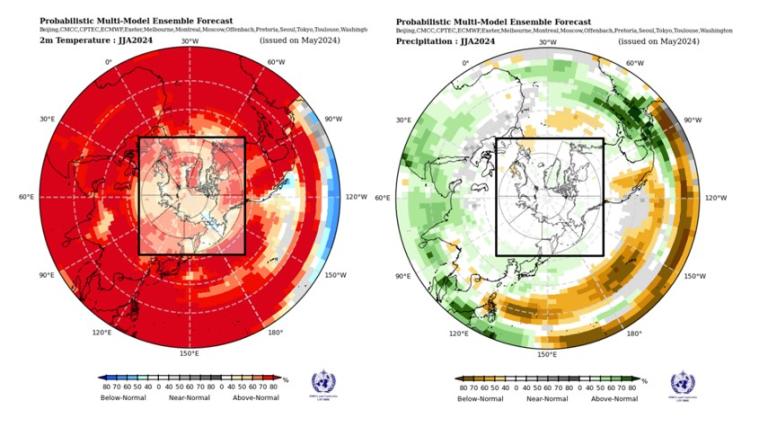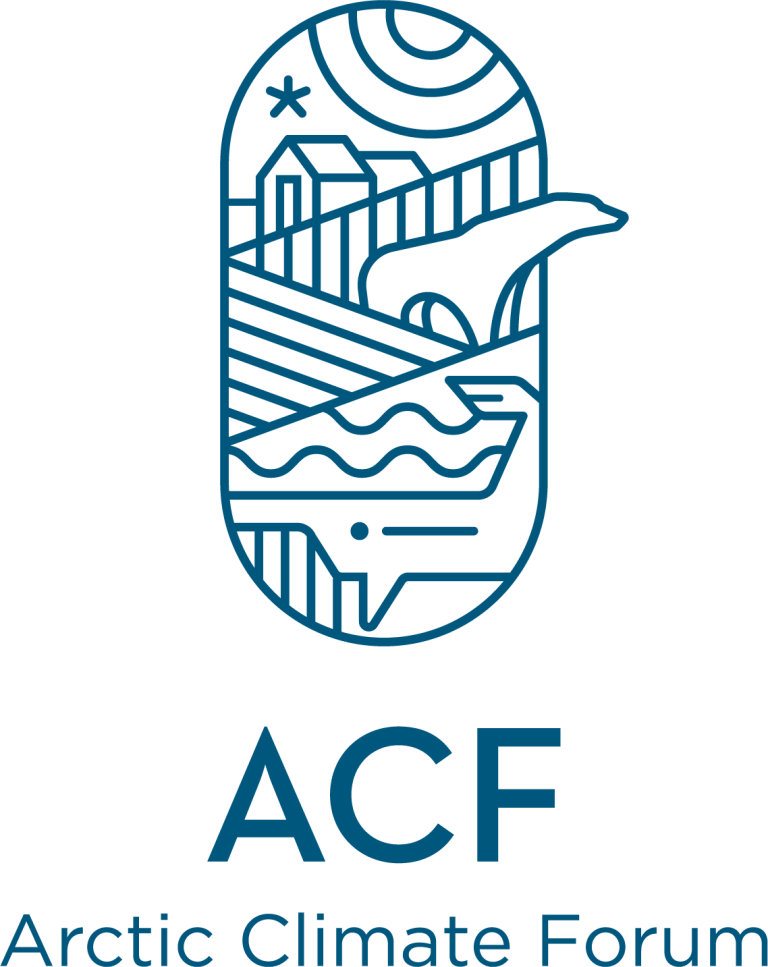Arctic Regional Climate Centre Network becomes WMO Regional Climate Centre for polar regions
The Arctic Regional Climate Centre Network (ArcRCC-Network) has been designated as a WMO Regional Climate Centre after successfully completing a demonstration phase since 2018.

It is the first ever WMO Regional Climate Centre (RCC) dedicated to the polar regions, with a special focus on cryosphere related products and services. It is part of a wider drive by WMO to improve climate predictions and services in the Polar regions – including the high mountain Third Pole region given their significance to the rest of the world and the international climate policy agenda. Concerted efforts are currently underway to initiate an Antarctic RCC-Network along with an Antarctic Climate Forum.
The ArcRCC embraces three WMO Regional Associations with a geographical domain covering a vast area within the Arctic Circle - Norway, Sweden, Finland, Russian Federation, the United States (Alaska), Canada, Denmark (Greenland) and Iceland.
All the eight member states of the Arctic Council are supporting the ArcRCC-Network.
There are three geographically delineated nodes:
- North American Node led by Canada with pan-Arctic Long Range Forecasting function (with USA as a member of consortium)
- Nordic Node led by Norway with pan-Arctic Climate Data function (with Denmark, Finland, Iceland and Sweden as members of the consortium)
- Eurasian Node led by the Russian Federation with pan-Arctic Climate Monitoring function
The Training function, which is a mandatory function of WMO RCCs, will be performed as a shared responsibility of all the Arc-RCC-Network Nodes.
The overall operational coordination of all the nodes is currently provided by the Norwegian Meteorological Institute.
All the products and services provided by the ArcRCC-Network are accessible through the web portal (https://arctic-rcc.org).
The portfolio of the ArcRCC-Network has been expanded during the course of the demonstration phase and currently includes a range of cryosphere related products/services.
These include monitoring and forecast products for sea ice (e.g. freeze and thaw of sea ice, sea ice extent) and for snow characteristics (snow water equivalent, snow depth, etc.), to meet the requirements of the major regional users, stakeholders and partners in polar regions.
While the WMO Regional Climate Centres in most other regions support capacity development, all the countries within the domain of ArcRCC-Network have highly advanced meteorological services.
Therefore, the emphasis is on sharing experiences and cooperating to tackle complex challenges in developing the full value cycle climate services in the Arctic and beyond in contributing to the Global Framework for Climate Services (GFCS).
Arctic Climate Forum
One of the important flagship activities of ArcRCC-Network is organization of Arctic Climate Forum (ACF) sessions, which are being held on a regular basis twice a year (in May and October, so timed to immediately precede the seasonal ice break-up and freeze-up stages respectively).
These bring together professional communities from National Meteorological and Hydrological Services and key stakeholders across the region to generate consensus climate products and to discuss its potential impacts in various sectors. They produce comprehensive consensus statements for the upcoming boreal summer and winter seasons respectively, consisting of reviews of climate monitoring information, recent observations and seasonal forecasts based on dynamical models.
According to the recently released 13th ACF Consensus Statement, there is a probability of 50% or more that temperatures will be above normal in most of the regions across the Arctic during June-September 2024.
For the precipitation over most parts of the Arctic, there are no model agreements or expectancies for near normal precipitation with probabilities of 40% or less. Above normal precipitation is expected for Iceland, Greenland, Labrador Sea, parts of Canadian Archipelago and Chukchi peninsula with probability expectancies of 40-50%.
For the boreal summer 2024, earlier than normal freeze-up dates are forecasted for west Barents, Kara, west East Siberian, north Chukchi and Beaufort seas, south Baffin and east Hudson Bays.


- عضو المنظمة (WMO):
- Norway ,
- Sweden ,
- Finland ,
- Russian Federation ,
- United States of America ,
- Canada ,
- Denmark ,
- Iceland

